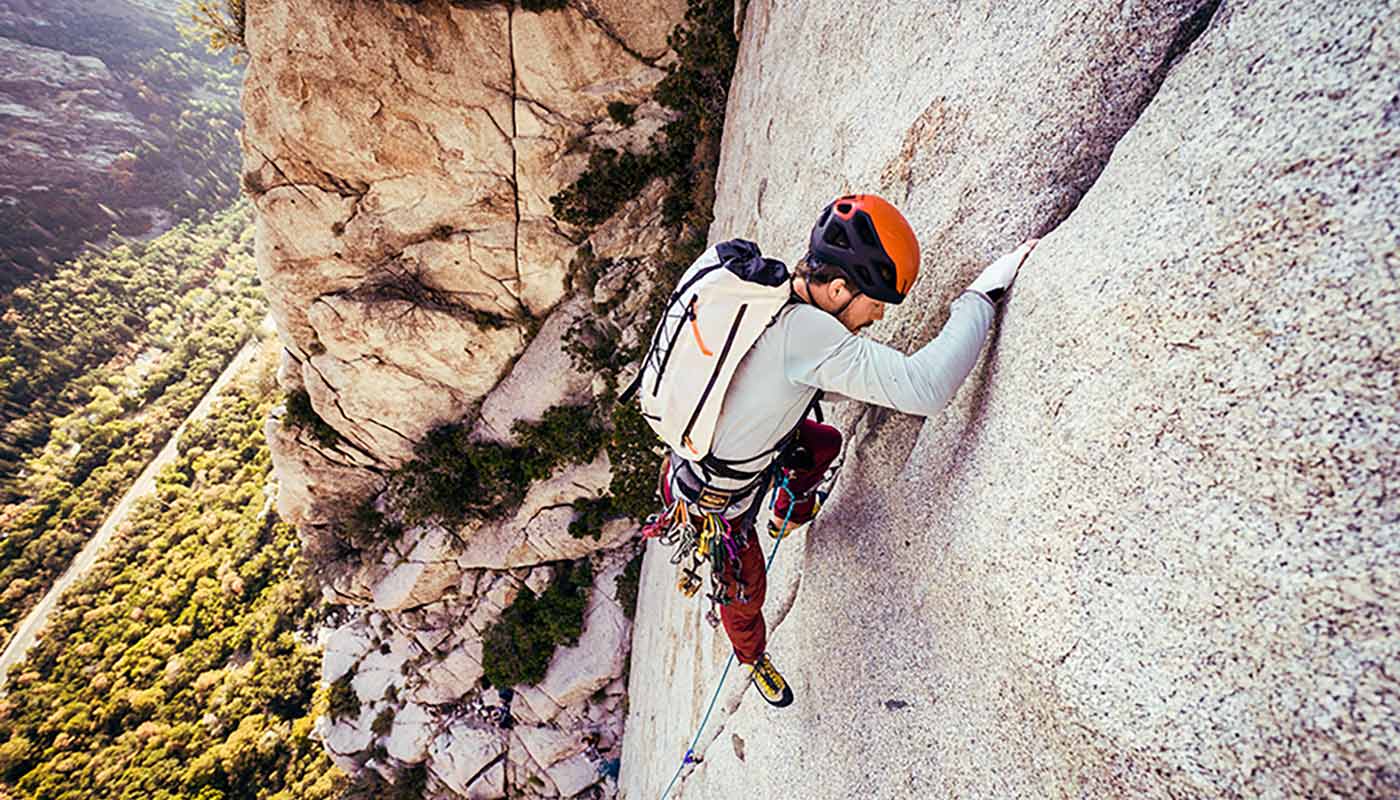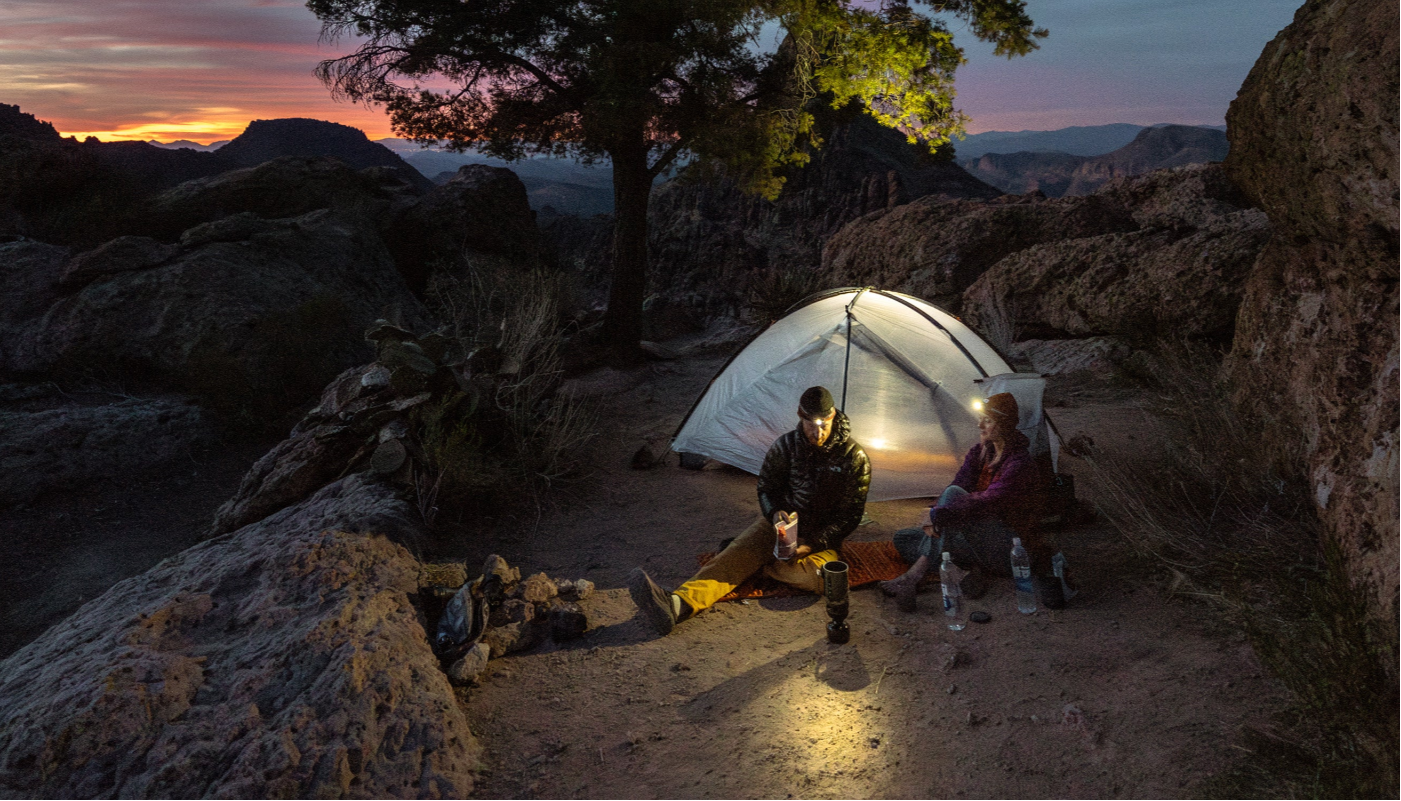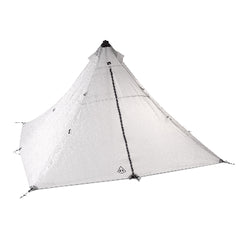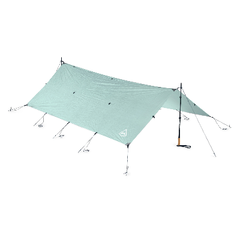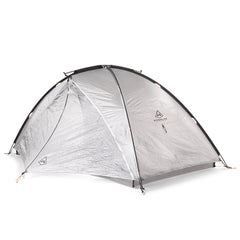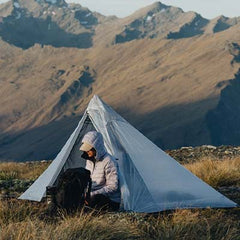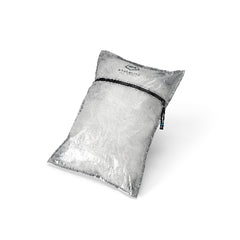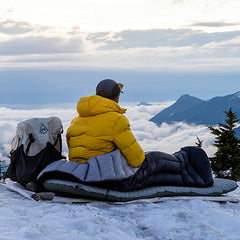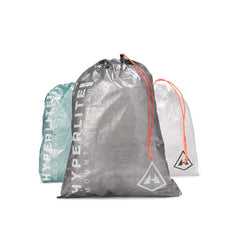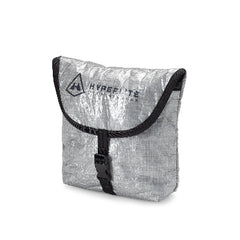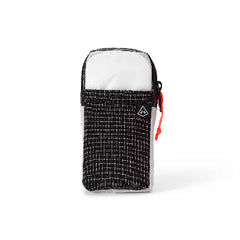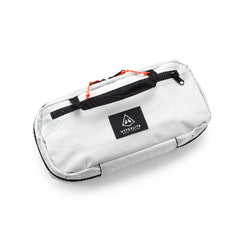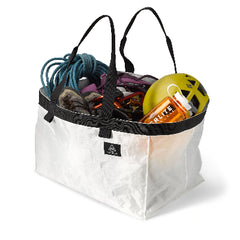Words and Photos by Rebecca Sperry
In the summer of 2015, I discovered hiking. It was simple–I wanted to go hiking one day, and my husband didn't, so I went by myself and got hooked. The sense of empowerment that I felt from setting out solo and the confidence that it gave me was tangible as I descended my first mountain, by myself, on a sunny day right on the cusp of summer. I ascended that mountain as a woman trying to find her new identity after her teaching program abruptly ended and had to find a new job, to a woman who found her new passion amongst the deciduous forest in the lakes region of New Hampshire.

My love for hiking continued to expand, and every year since that fateful day in 2015, I have upped my mileage totals, my summit counts, and my experience as a solo hiker. By 2020, I was ready to take on my biggest challenge yet: attempting to hike over 1,400 miles of trails in the White Mountains of New Hampshire in a single calendar year, a feat known as redlining that typically takes years to accomplish. On a brisk morning, January 1, 2020, I started my quest, and throughout the first three months of that year, I hiked as much as I could while still working full time. Then, COVID-19 happened. Our nation shut down, and I was forced to give up on my attempt because of travel restrictions.

In June of 2020, I set out again, from scratch, to hike all of the trails in The Whites in a calendar year. I was in the best shape of my life as July turned to August, and then something that I never expected to happen to me happened. My husband found a lump in my breast, and within a week, I was diagnosed with stage two triple-positive breast cancer. My treatment would take over a year, and I would have to, once again, give up my attempt to hike all of the trails in The Whites in a year. I was devastated. Not only did I have to scale back my hiking significantly, but I was also facing my own mortality head-on (nothing can prepare you for that).

In September 2020, I had major surgery to remove over a pound of tissue from both of my breasts (my cancer was bilateral) and was forced to take a month off of hiking. As the end of that month approached, I decided that regardless of whether I was going to be starting chemotherapy, I had to begin hiking again. So, with the blessing of my oncologist and surgeon, I made a commitment to myself that I was going to hike one mountain (even if it was small) every week of chemotherapy (I was receiving weekly infusions of Taxol and Herceptin) and do some form of physical activity the other four days of the week. I made this commitment to myself for two reasons: I wasn't willing to let cancer take hiking from me and had no control over what was being done to my body, but I did have control over what I did with it.
My first round of TH chemotherapy was October 22, 2020, and my final round was January 7, 2021. I hiked every week at least once, climbed twenty-eight mountains, including three 4,000'ers, and did some form of activity five days a week for all twelve weeks. Looking back, I genuinely don't know how I did what I did, given how low my blood counts were. I felt a sense of extreme pride in myself, but I wasn't done yet. I still had twenty rounds of radiation and another fourteen rounds of Herceptin.

As my treatment shifted to a less aggressive regimen, I no longer felt the desire to set explicit goals for myself in terms of exercise. I continued to hike multiple days a week, and as spring turned to summer, I decided to go on a backpacking trip on the Monadnock-Sunapee Greenway (a 48-mile trail in southwestern New Hampshire). I would cover 48 miles in three days, carrying a full overnight pack, despite the fact that I was still anemic and just barely getting to the point where my radiation burns were fully healed. Tiredness didn't stop me, I had adapted to my new normal, and regardless of how hard it was, I was determined to complete this backpacking trip to prove to myself that I could.

By full-blown summertime, I was ready to attempt another backpacking trip with one of my friends (my first time backpacking with another person), and in mid-July, I hiked thirty-six miles of the Long Trail in Vermont. I planned my hikes to be right before my next dose of Herceptin, because that was when I was at my strongest, and my oncology team would ask me every time I went in for treatment what hikes I had done. I became the girl hiking through cancer treatment, and it felt wonderful to have the support of the hiking community, family, friends, and my medical team.

Summer turned to fall, and I continued hiking. I overnighted in Baxter State Park, hiked along the Appalachian Trail, and started preparing for school to start. It never occurred to me that I hadn't taken a week off from hiking since the previous October. I didn't intend to hike so regularly and consistently, but it just happened that way. One day in late August, when I was feeling particularly tired, I decided to look at my hiking calendar only to discover that I had hiked every single week of cancer treatment.
"I wonder if I can hike every week until I'm done," I thought. It wouldn't be easy with school three days a week, but when I realized that I had already gone over forty weeks straight, I knew that I had to try.
Despite having an exorbitant amount of homework, I made time every week for all of September to hike at least one day a week, and on October 14, 2021, I received my final round of Herceptin. I set out to hike a few days later, completing a year's worth of hiking through cancer treatment. In fifty-two weeks, I hiked 704 miles, spent 104 days on trail, and summitted 89 peaks. I received twenty-six rounds of Herceptin, twelve rounds of Taxol, and twenty rounds of radiation.
Hiking through cancer treatment was my way of taking control over one aspect of my life while having most of the control taken from me. I couldn't decide what was done to my body (I had two choices: get treatment or eventually die of cancer), but I could decide what I did with my body, so I hiked. My medical team encouraged me to be active–in fact; my oncologist told me that the only thing that is proven to combat chemo brain and the tiredness that comes with chemotherapy is exercise. I can attest to the fact that they are right. Every time I got on the treadmill, even if it was only to walk for twenty minutes, I got off feeling more clear-headed and less tired.
The saying goes, we make time for what's important. For me, hiking was and is important enough to make time for. Even when I only had a few hours a week where I felt semi-coherent while in the throes of weekly chemotherapy, I would prioritize hiking and homework. Cancer treatment taught me how to manage my time. It taught me how to use what little energy and brain power I had to accomplish what was most important.
When you face your own mortality head-on, you can't help but take a hard look at how you spend your time, and you figure out really quickly what your priorities are. Originally, hiking fifty-two weeks straight wasn't the plan, but having mini-goals throughout treatment motivated me to stay active and increase my mood.
Whether you work sixty hours a week or six, do something that gets you active and outside regardless of your own circumstances. We don't necessarily have control of many aspects of our lives, but we do have control over what we do with our bodies, and I say the best thing you can do with yours is move it.
Rebecca is an avid hiker based out of New Hampshire. She hikes almost exclusively solo, prefers the less-traveled trails, and when she's not hiking, she is usually writing about it. You can follow her journey on her website: rebeccasperry.com or her Instagram: @socked_in_hikes
